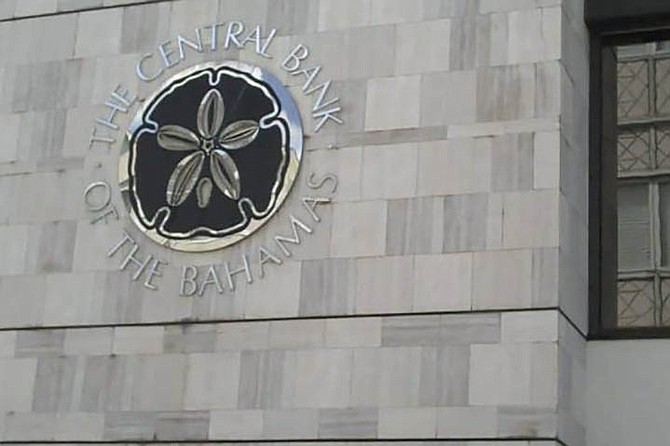By NEIL HARTNELL
Tribune Business Editor
nhartnell@tribunemedia.net
The Central Bank was yesterday said to have given commercial banks "a stretch" by urging them to be lenient with borrowers who show signs they may be able to resume repayments in 2021.
Kenrick Brathwaite, the Clearing Banks Association's (CBA) chairman, told Tribune Business that the regulator was encouraging, rather than ordering, banks to "not be too hard" on customers whose loans remain in deferral due to COVID-19 if they show "ability and willingness" to start meeting their obligations next year.
The Central Bank's position, was set out by Charles Littrell, its inspector of banks and trust companies, in his 2020 third quarter letter to bank and trust company licensees. "The domestic banks and credit unions have performed well in offering deferrals to adversely affected borrowers," he wrote in relation to COVID-19.
"As we now settle into a substantial but unknown period of economic disruption, it is important that domestic lenders" apply four criteria, or guidelines, suggested by the Central Bank. These included borrowers who can pay, and meet their obligations, to regular payments after their deferrals expired, while also "communicating with and understanding" those unable to do so due to job and income losses.
However, Mr Littrell then said: "Continue deferrals for borrowers who display the likely ability and willingness to resume payments in 2021, and resolve, in a sensible and balanced fashion, non-performing loans that will not be repaid in full."
Confirming that the Central Bank's request was not a directive that commercial banks must comply with, Mr Brathwaite told Tribune Business that "it's a stretch" for the industry to meet given the difficulty in determining whether jobless borrowers will be able to resume employment in 2021 given the economic and tourism uncertainty.
"They've basically said to the banks that if you think there is any kind of indication an individual will be able to resume employment in 2021 and be able to pay you, you should not be too hard on them," he explained.
"The Central Bank is working hand-in-hand with them [the Government] to say bear in mind anything you do creates an impact on the economy, and we're asking you to be lenient. If there's any evidence that individual will be employed in 2021, let's be lenient with them."
Mr Littrell, meanwhile, moved to "reinforce" the Central Bank's earlier COVID-19 loan deferral guidance "that implies, among other things, a minimum 10 per cent provision on the portfolio of unsecured deferred loans (net of security held) by 31 December".
He added: "Feedback from the domestic banking sector is that, as a group, the banks can afford to provision more conservatively than this, and have started that process." This suggests Bahamian commercial banks will be taking provisions will in excess of the floor set by the Central Bank.
Calling for better compliance with statutory reporting guidelines, Mr Littrell said: "The Central Bank reviewed the timeliness and compliance of reporting by supervised financial institutions for the period 1 July, 2019, to 31 August, 2020. The overall results showed that there is an average on-time reporting rate of 76 percent for all documents that are to be submitted.
"The expectation of the Central Bank is that, absent a specific waiver, supervised financial institutions must submit all statutory or regulatory filings on time. Each institution should conduct an internal review to determine whether it has submitted all of its required documents, and immediately upload any discovered omissions through the portal.
"Also, the review should take note of how timely the institution has been in its submission and it should inform a plan of corrective action if there is need for improvement."
Mr Littrell said the new capital regime ushered in by the Basle II and III accords will be implemented from January 1, 2022, having been delayed by the COVID-19 pandemic.





Comments
Use the comment form below to begin a discussion about this content.
Sign in to comment
OpenID